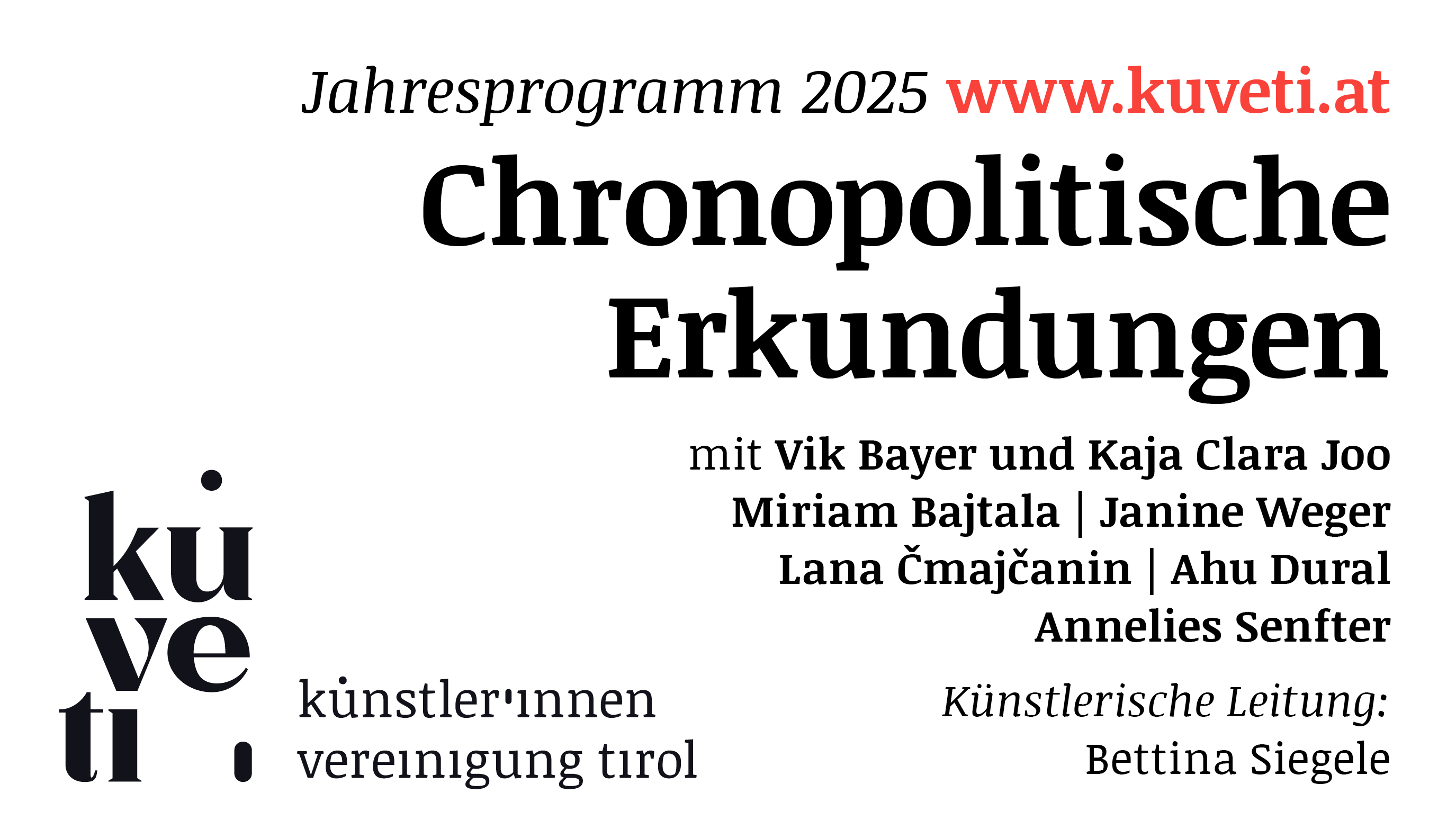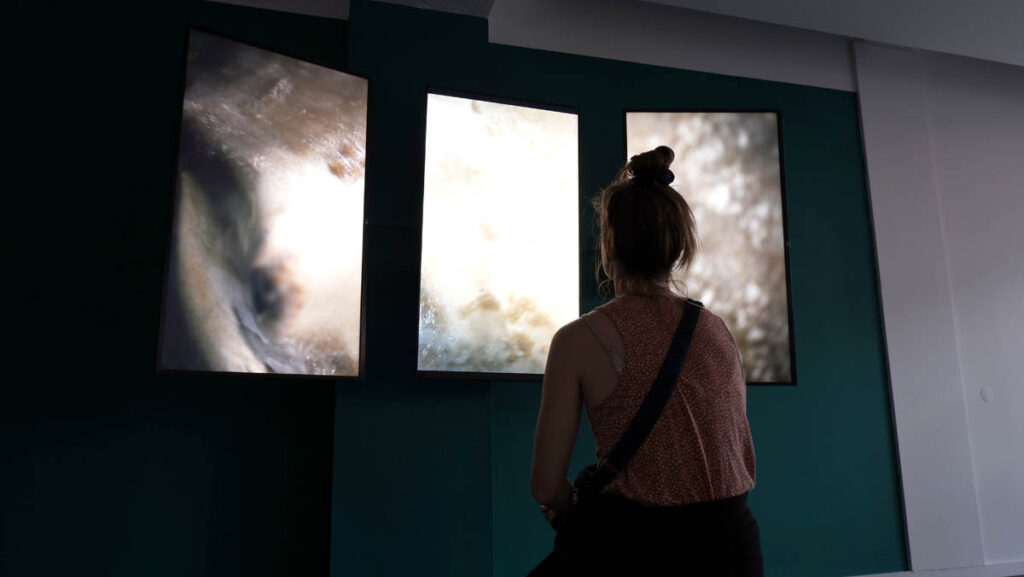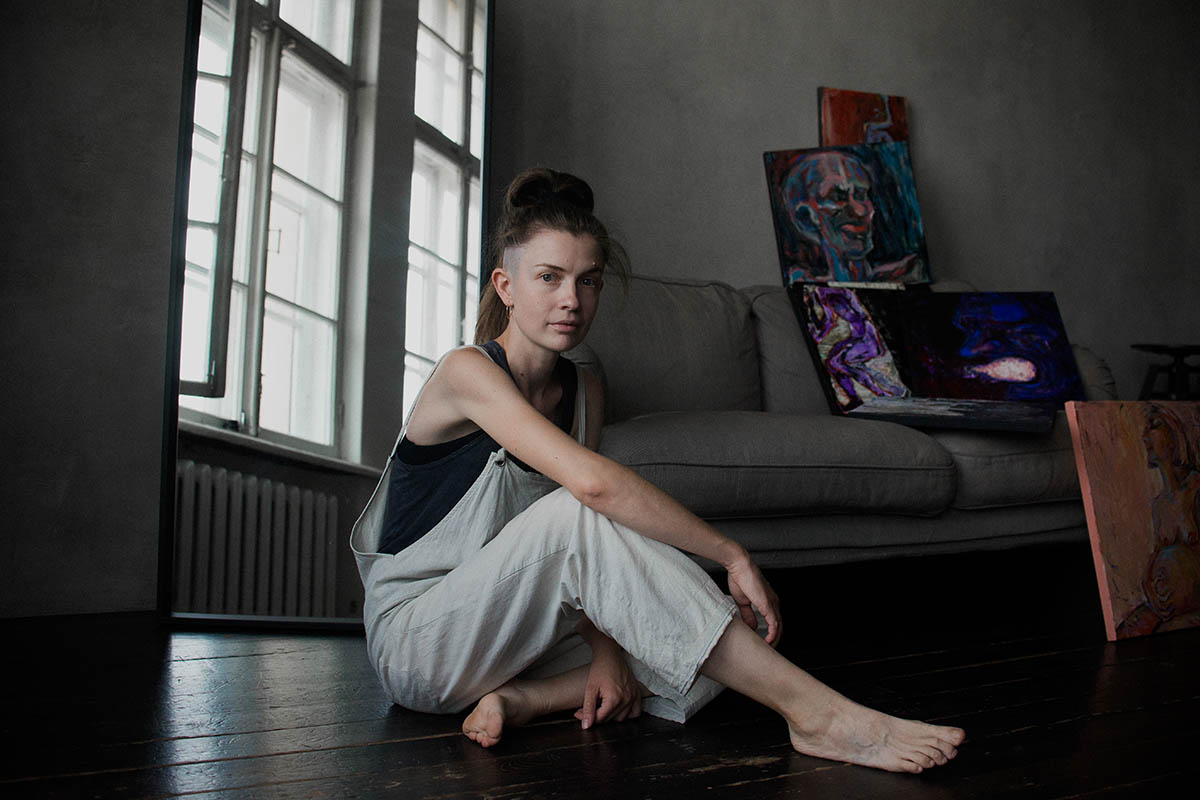
How did your journey as an artist begin? How did you find your style and mood?
I distinctly remember my first discovery in drawing was realizing the difference between the female and male figures, particularly noticing the pronounced waist in women and the overall body proportions. This realization ignited my passion for drawing at the age of six. Initially mimicking my talented brother, I continued sketching incessantly. At 14, I applied to art school, eventually enrolling in the Glebov Art College in Minsk. The profession of an artist did not bring in any money, and after that, I combined different jobs, including working in sales for five years due to the lack of income from art. I didn’t actively cultivate a style or mood; it seemed to evolve organically. While my works may seem similar, each new piece marks a fresh exploration.
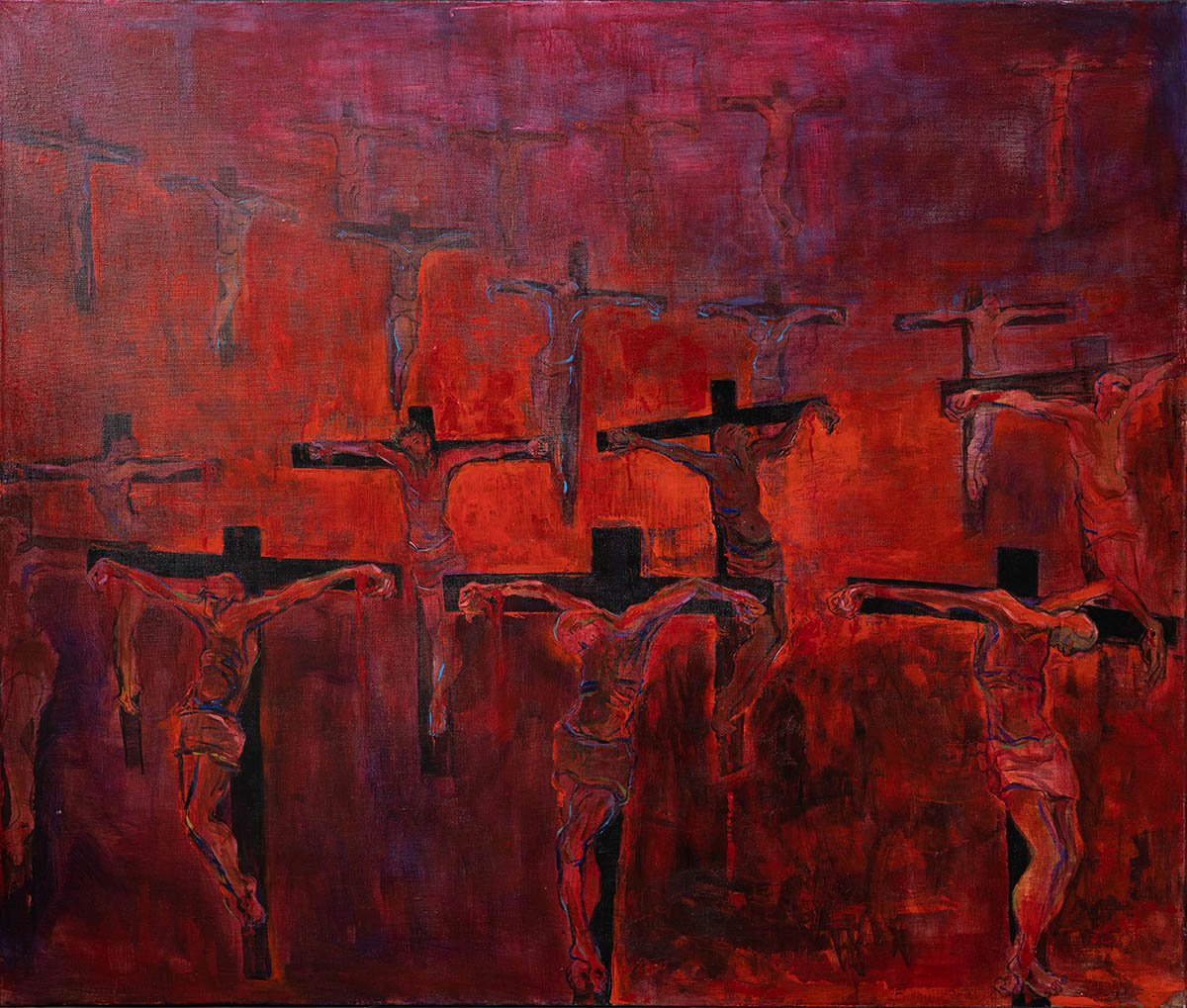
What trends in Belarusian art and culture influence your work?
It’s hard to say if they influence me. Currently, in Belarusian art, I observe several parallel trends. Firstly, there’s a tendency towards distraction. It’s common here to explore detached themes, unrelated to specific reality. Moreover, creativity is significantly constrained by censorship. Audiences are presented with views of space, the beauty of world architecture, or the jungles of Brazil. It all takes on an entertaining and educational character. It seems that art here shouldn’t address important matters; it’s meant to distract, entertain, and surprise, but not too profoundly. Similar trends can be seen in China, although the level of execution and the final outcome differ. In this case, art aims to create a safe world, shielding the audience from anxious thoughts, and from the possibility of analyzing and experiencing strong emotions capable of shaping critical thinking, intellectually developed personality, empathetic. However, there’s another Belarusian art capable of triggering deep processes of self-discovery. But it’s beyond what’s acceptable, so it remains in the shadows and lacks mass popularity.
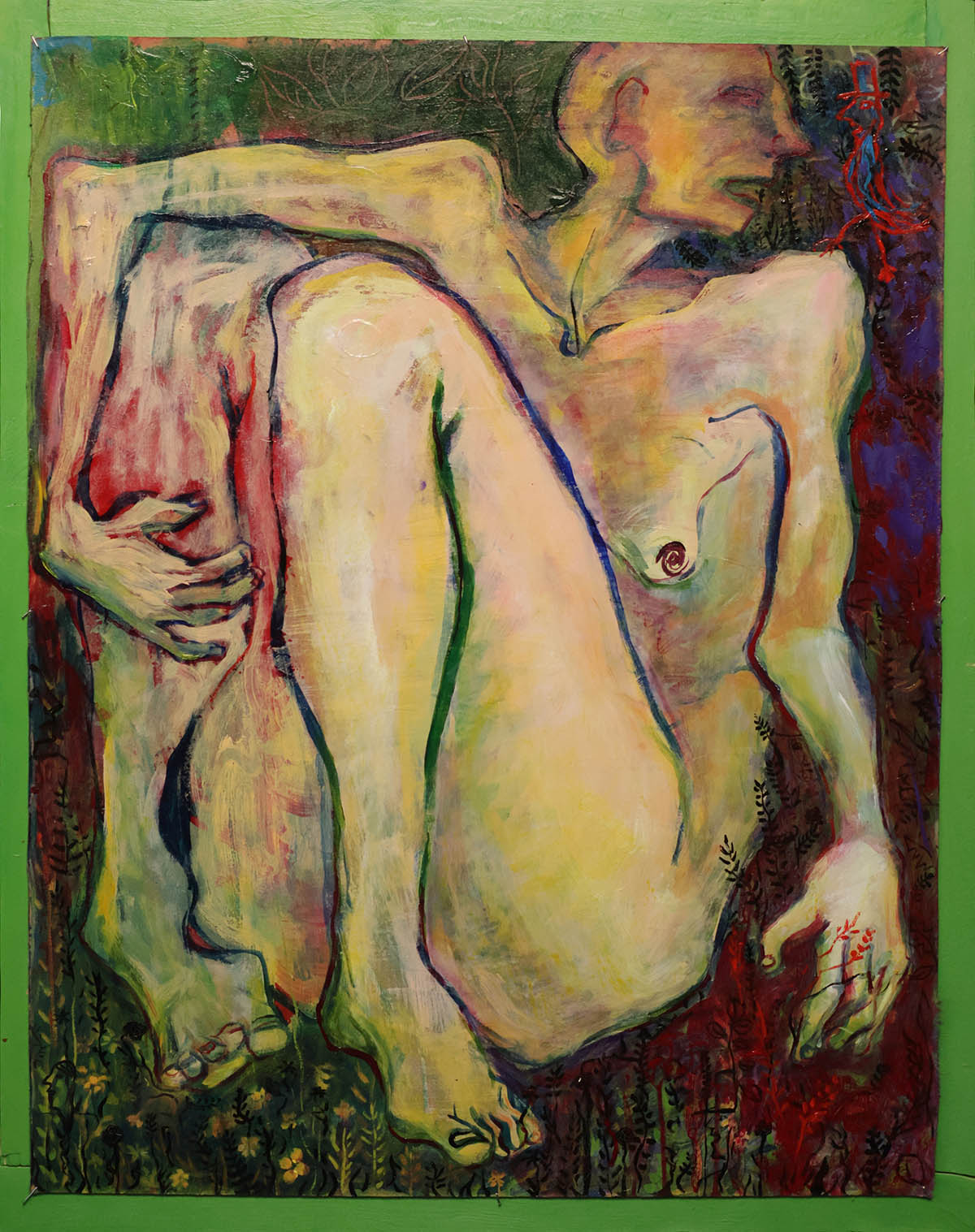
How do you see the connection between contemporary expressionism and its historical roots? Do you strive to engage in a dialogue with past periods of art through your work?
To understand this connection it’s probably worth recalling when and where expressionism was born. By the beginning of the 20th century, rapid industrialization, global capitalism, and the weakening of religion had deprived humanity of illusory spiritual support, leading to a loss of spirituality and, consequently, on the brink of a global catastrophe. Unlike the impressionists, who advocated living in the moment, enjoying the fleeting sunlight, and finding aesthetics in everyday joys, expressionists invited viewers to look at the troubled reality through the lens of their inner sensations. Considering that as a movement, it emerged in Germany in the early 20th century as a reaction to the socio-historical realities of that time, the cyclical return of this style is quite understandable. It’s quite logical to assume that now, a hundred years later, as humanity experiences another moment of global crisis, expressionism may be relevant. In my works, I tend to address myself or some potential interlocutor, yet it’s possible that references to both predecessors and their images can be traced in my paintings. And this is precisely because of the connection I mentioned earlier.
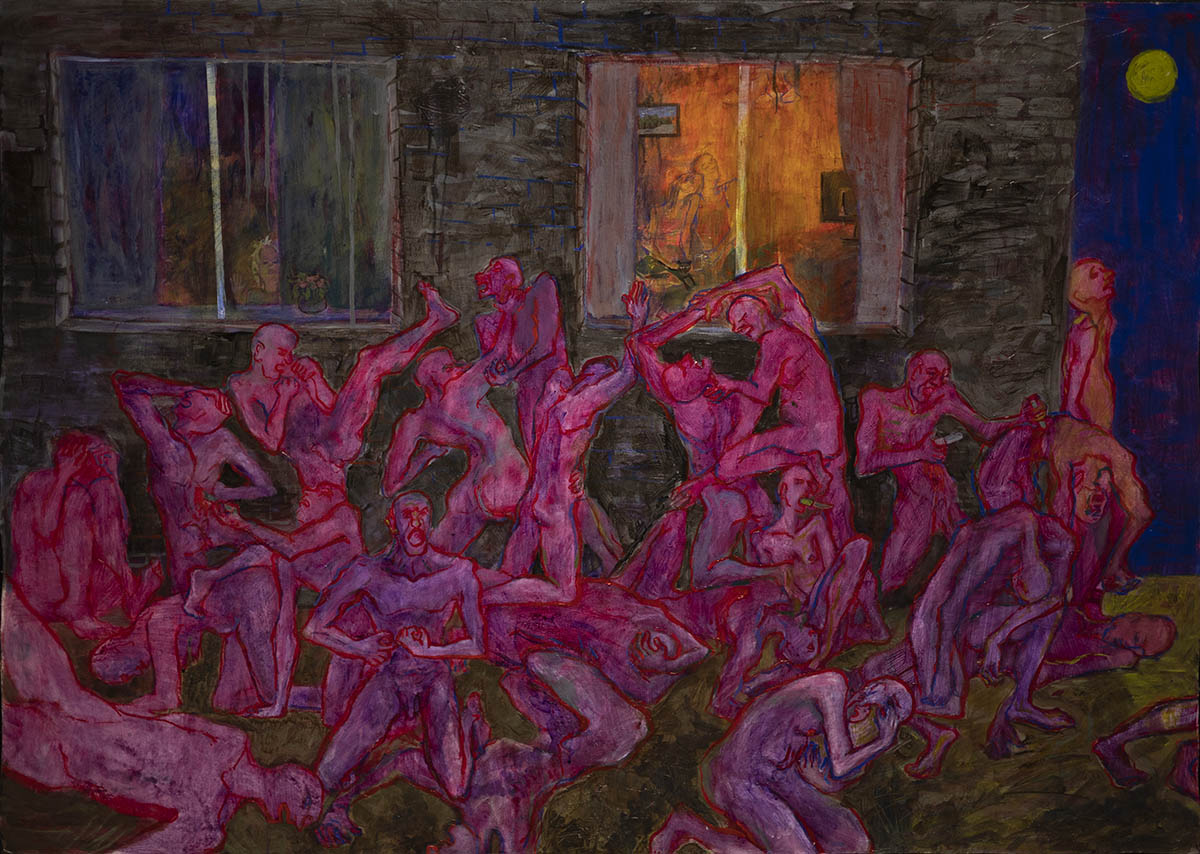
In your opinion, what makes expressionism special and relevant even today, in the context of contemporary art?
We live in a digital age that has brought many of its own corrections. Contemporary art is rich in conceptualism, actionism, installations, performances, 2D, 3D, NFTs, AI, and more. However, although painting is not the only means of creating visual art now, personally, as an artist, I feel a strong need for self-expression precisely through this medium. Although I do not seek to imitate the founders of expressionism and generally do not classify myself into any specific movement, some features of this style are quite characteristic of my works precisely because I perceive the world in this way. And I see how humanity is once again „stepping on the same rakes“. It cannot but worry me. However, I would like to believe that my expressionism still visually differs from expressionism a century ago.
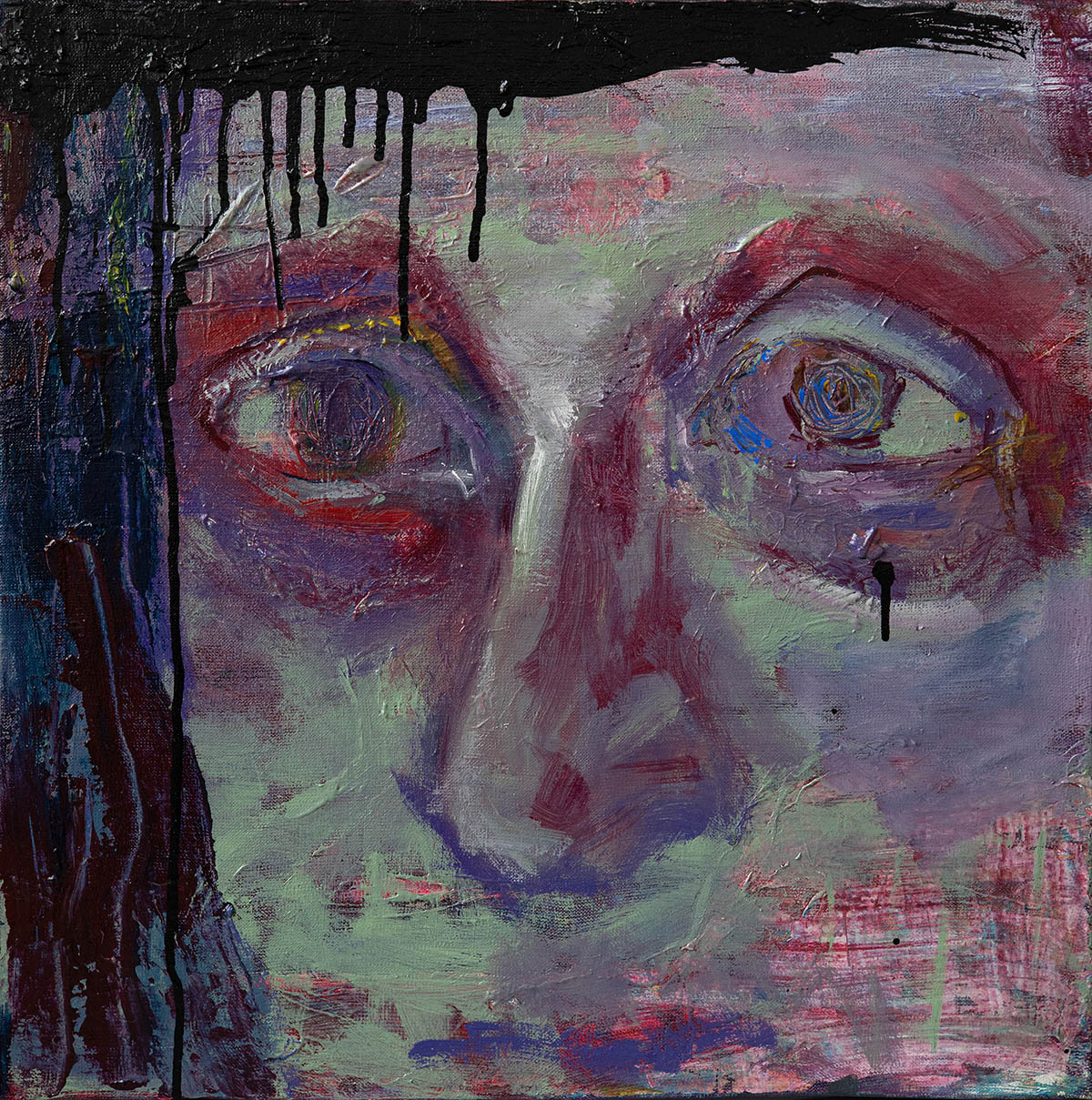
In your view, what sets your creativity apart from the work of other artists in Belarus and abroad?
I don’t follow trends. In reality, an artist never follows fashion; they simply express themselves, shaping the world based on personal perception, and engaging in a dialogue with themselves and others. Of course, current reality influences creativity to some extent, but the same trends, passing through the perceptions of different artists, generate different results. After all, each person has their own personal experience and cultural code shaped by a multitude of factors. Therefore, I tend to think that all artists are unique and differ absolutely in everything due to their individuality. And if someone intentionally sets themselves the goal of „meeting demand“ while working, then this story is no longer about art.
What was your first impression when your works were presented at the exhibition in Krakow, Poland?
I was shocked when the curator (Valeryia Kaliaha) offered me this opportunity. I wanted to exhibit my „Dark Series,“ to show the viewer everything that was troubling and accumulating inside, but no space in Belarus wanted to exhibit me, and I was almost desperate. So I turned to Valeryia, who was able to easily and quickly organize an exhibition in Krakow. However, due to the circumstances at the time, I was unable to attend the opening of my debut exhibition in person. So I felt both joy, excitement, and sadness simultaneously.
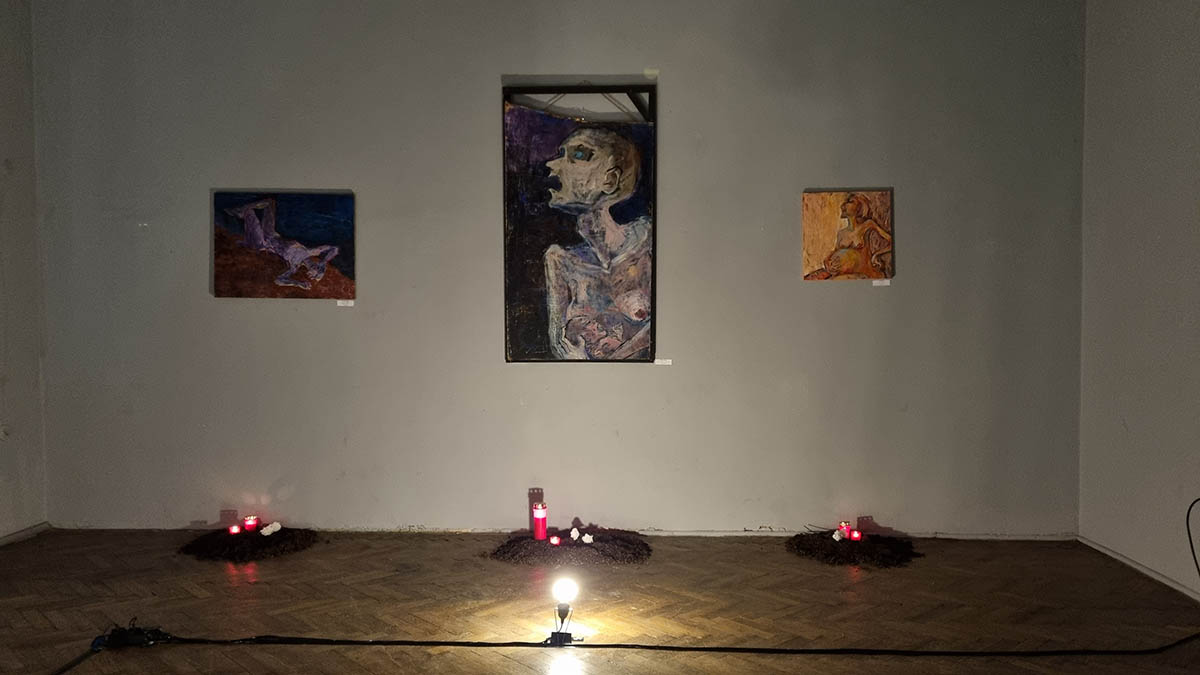
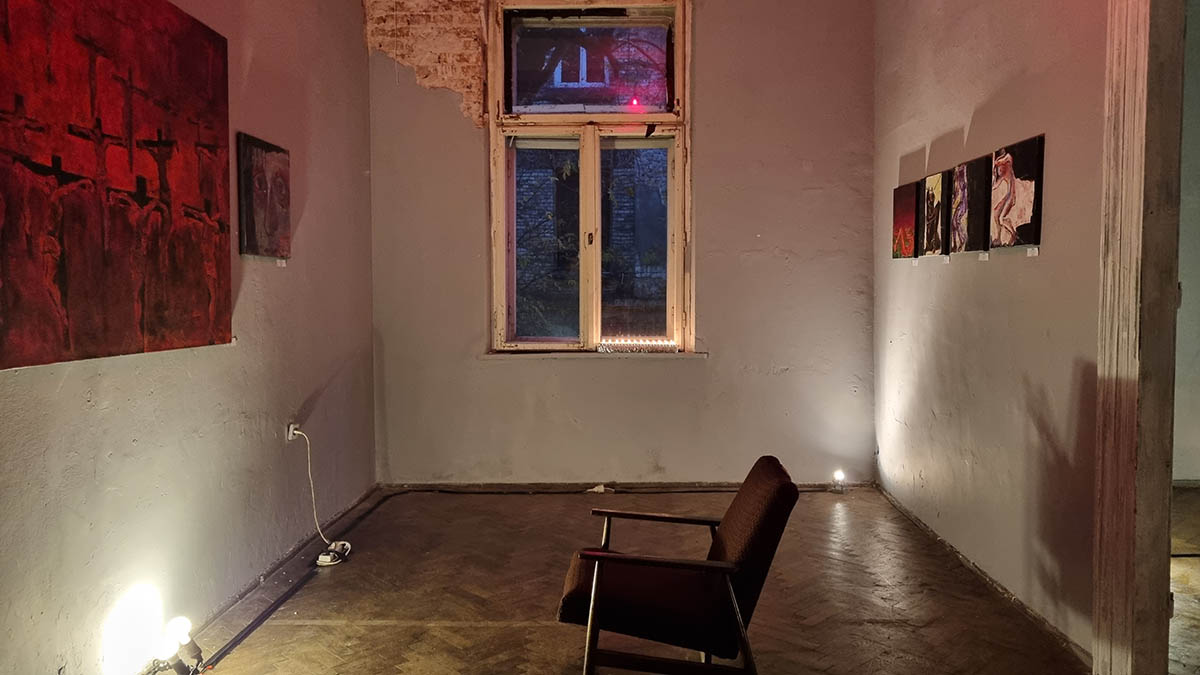
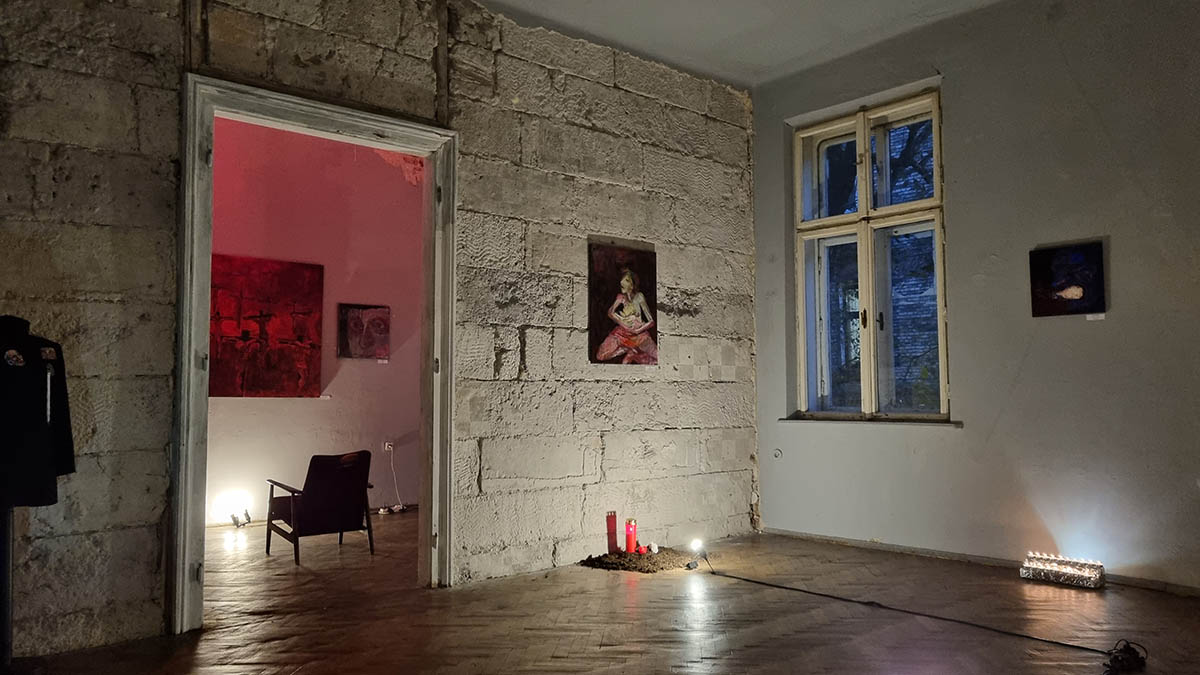
What was the exhibition „Mother. She’s still here“ about, which took place in Krakow, Poland, in November 2023?
The concept, created by the curator (Valeryia Kaliaha), leaves ample room for viewers to process and comprehend my paintings, tactfully leading to certain conclusions. However, for me as the author, it’s primarily about the value of human life. It’s about the heaviest premonitions a mother can have while raising an innocent being in a ruthless and unjust world, where the lives of others are disposed of irresponsibly and, as a result, inhumanely.
How do you evaluate the audience’s reaction to your works? Were there any unexpected or particular responses?
Judging by the feedback, the exhibition definitely made a strong negative impression. We managed to create an unsafe, oppressive space symbolizing the external world today. One girl even started to feel physically nauseous from the uncomfortable and heavy emotions. I certainly did not expect my works to have such an effect, but I am very pleased with this feedback. Overall, everything went exactly as intended. I think we succeeded.
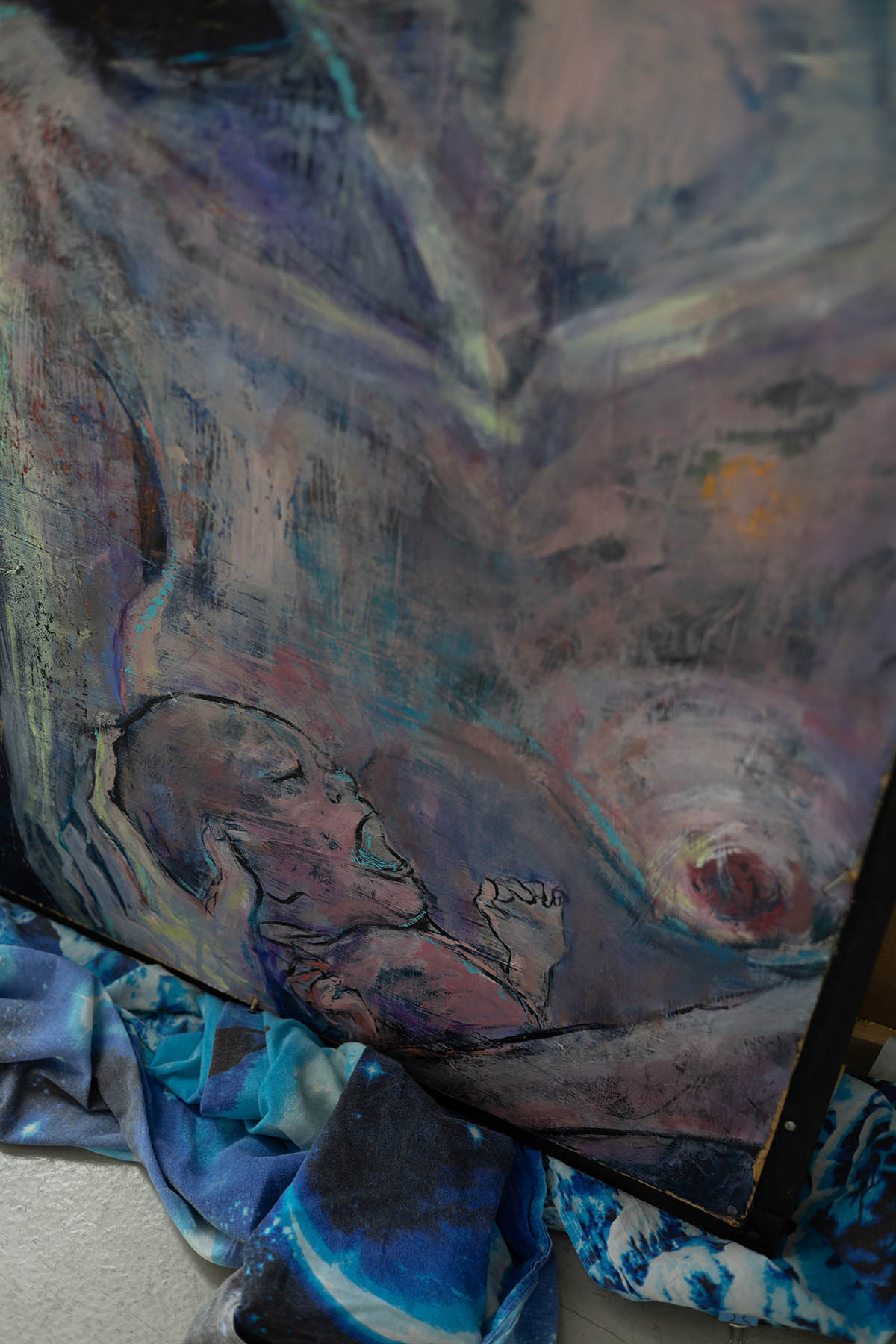
How do contemporary artistic trends reflect the changing values and interests of society?
It’s worth noting that the world is divided now, and in light of recent events, completely different values are being broadcasted in different parts of the planet. For example, European art, characterized by multimedia elements and gravitating towards abstract understanding, aims to make the viewer analyze, reflect, and grow intellectually by appealing to sensory perception. I believe this desire to overcome strict stylistic, genre, and technical boundaries represents freedom and awareness, the absence of caste, which the cultural layer of European society strives for. In turn, completely different values are being imposed in other fields. However, artificially cultivated ideology, convenient for the ruling elites, is incapable of subjugating true art. True art is primarily about freedom. As a result of these factors, and despite them, the originality and uniqueness of authors from the post-Soviet space particularly stand out against the general background. But the world is not limited to geopolitics, and too many factors find their reflection in art. There are too many similar problems in different countries. It’s just that in some places, it’s possible to talk about these problems, while in others, it’s not.
What inspires you to create a new canvas? Do you listen to music or create a specific atmosphere?
Many factors, individually and collectively, shape my inspiration and desire to work. The exact origin of the images remains elusive to me. What’s essential for my work is silence, space, and solitude, allowing me to immerse myself in my thoughts. However, when tackling technical challenges, I sometimes turn to music or audiobooks for support.
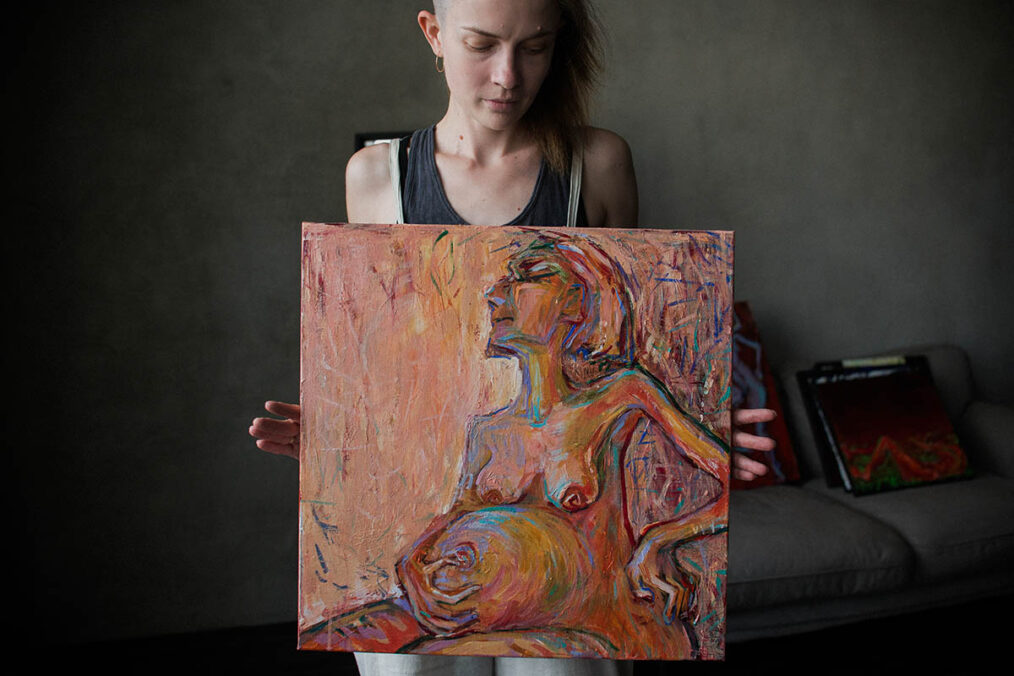
Which artists do you follow in the global context?
I try not to lose sight of contemporary art from different countries, currently accessible to me only through the Internet. But I can still mention some names of those who are always in my feed: Daisei Terazono, Misha Bart, Adam Riches, Walid Ebeid, Piotr Wolanski, Georg Sili, A.R.Ch. (А.Р.Ч.)
Do you have any new projects planned in the near future?
Within my studio, rest approximately 30 paintings awaiting their debut before an audience. The creative process is ever-flowing, continuously birthing new works. Naturally, I anticipate future exhibitions, though presently, the precise venues and arrangements remain uncertain. Yet, there exists a readiness for collaboration, eagerly awaiting opportunities to share my art with the world.
Margarita Dyushko – www.m-dyushko-art.com, www.instagram.com/m_dyushko__art



